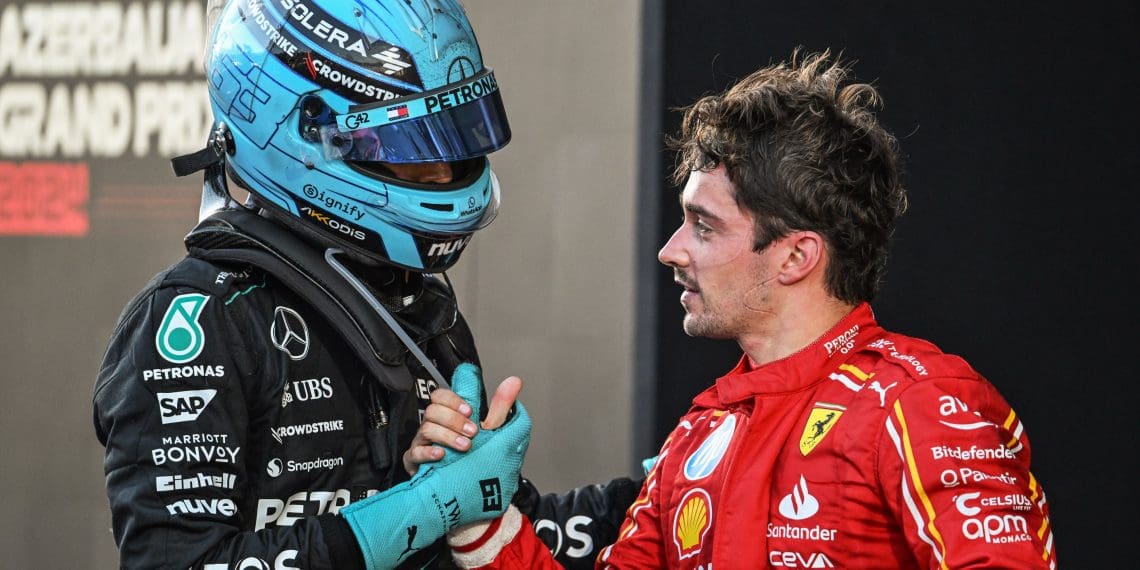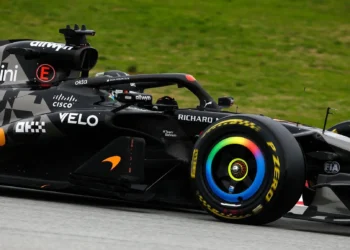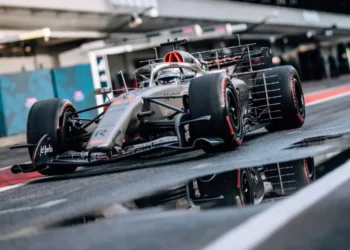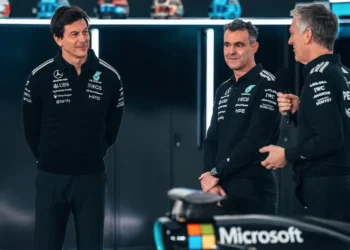George Russell was left scratching his head after an unpredictable Azerbaijan Grand Prix, where Mercedes experienced a dramatic swing in performance that left even the driver himself “frazzled.”
Despite capitalizing on the late-race crash between Sergio Perez and Carlos Sainz to snatch an unexpected podium, Russell was bewildered by Mercedes’ erratic pace, which fluctuated between disastrous and race-winning potential in a single race.
Starting from fifth, Russell initially lost ground to Max Verstappen but managed to recover, running a distant fifth before Perez and Sainz’s collision handed him a surprise third-place finish. However, while the podium was a welcome result, Russell admitted that Mercedes’ early struggles left him perplexed.
“We thought we could probably fight for P5,” Russell reflected. “But how the race unfolded, we definitely didn’t expect [to get third].”
The first stint was where the trouble began. On the Medium tyres, Russell said he was “a second and a half slower than Charles [Leclerc] on most laps,” which made it feel like the race was falling apart. But once he switched to the Hard compound, everything changed.
“The last 20 laps, we were a second a lap quicker than [Oscar] Piastri and Charles, and three or four tenths quicker than Max [Verstappen], Carlos [Sainz], and Checo [Perez],” Russell explained. “It’s bizarre because the only difference was switching from the yellow tyre [Medium] to the white tyre [Hard].”
The Mercedes driver emphasized the wild contrast between their pace on the two compounds, going so far as to say that Mercedes went from having a car barely worthy of points to one that could win the race—within the same event.
Russell blamed the inconsistent performance on the sensitivity of Pirelli’s current-generation tyres. The extreme shifts in competitiveness, not just for Mercedes but across the grid, have made it increasingly difficult to predict race outcomes.
“We’re not the only team to talk about this,” Russell pointed out. “It’s pretty frustrating for all of us when you just don’t understand the fluctuations in performance between a Q1 and a Q2 session, or from one stint to another.”
Despite some speculation that Mercedes’ decision to run the Hard tyres earlier in the weekend may have contributed to their race-day success, Russell dismissed the idea, citing that the dirty track conditions during practice didn’t offer useful data.
Ultimately, while Mercedes walked away with a solid result, Russell made it clear that the team needs to dig deeper to understand these massive performance swings. With the tyres seemingly dictating their fate, finding a consistent competitive edge remains Mercedes’ primary challenge moving forward.










